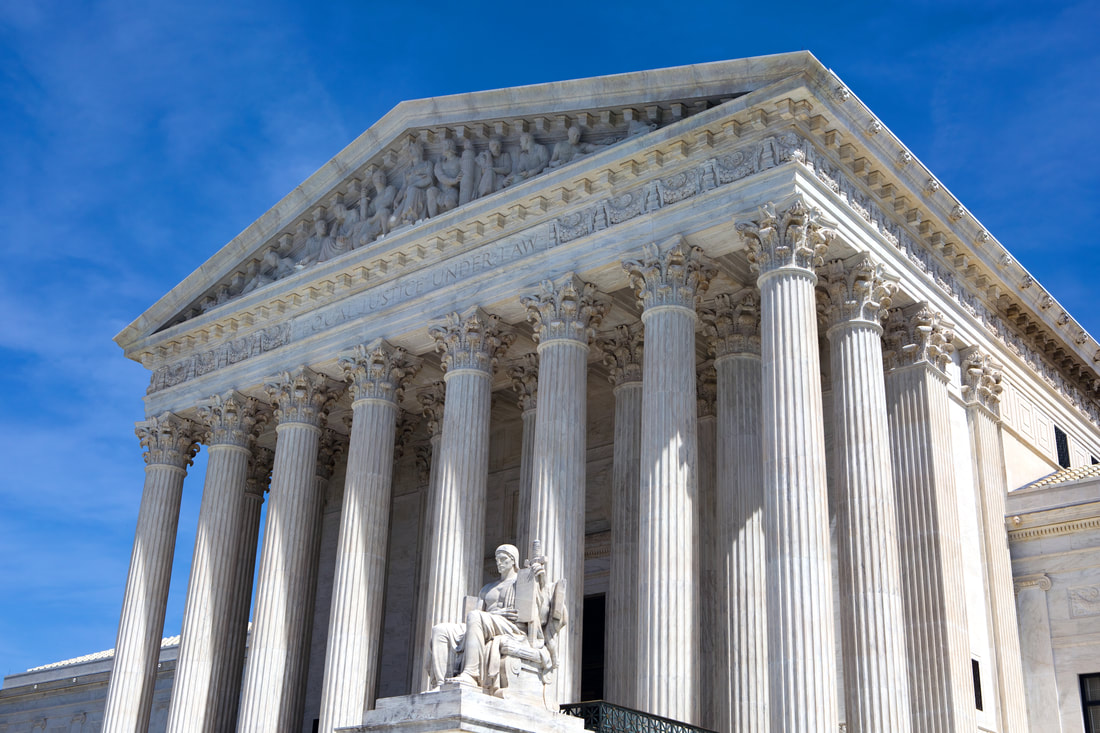 Lauren Teukolsky has been invited to speak on the issues raised by the U.S. Supreme Court’s recent decision in Viking River Cruises v. Moriana on a panel at the College of Labor and Employment Lawyers (CLEL) Ninth Circuit South regional program. The panel discussion will take place Saturday, September 10th in San Diego. Ms. Teukolsky and her co-panelist, George S. Howard, Jr. of Paul Plevin, will discuss the impact of Viking on PAGA cases, and provide practical advice for attorneys facing Viking issues. Ms. Teukolsky has fought to protect employee’s rights for over 20 years and is a frequent speaker at conferences on topics of employment law and litigation. She previously discussed the implications of Viking River on a panel for CELA, a statewide organization that works to protect and expand the legal rights of workers. She is also frequently cited in news publications for her commentary on developments in the field and was most recently quoted in a June Bloomberg Law article on the Supreme Court’s decision in Viking River. To learn more about Ms. Teukolsky’s experience, click here. CLEL is a distinguished body of individuals drawing its membership from the best and brightest lawyers, academics, and scholars in the field of labor and employment Law. After a rigorous selection process, Ms. Teukolsky was elected a CLEL Fellow this past July.
0 Comments
 Ms. Teukolsky will speak on a panel for a CELA Webinar on the U.S. Supreme Court’s decision in Viking River Cruises, Inc. v. Moriana on July 18, 2022, from 12 pm to 1:15 pm. At the webinar, Ms. Teukolsky will unpack the Court’s decision and discuss the decision’s impact on pending and future cases brought under California’s Private Attorneys General Act (PAGA). Ms. Teukolsky will speak alongside co-panelist Michael Rubin of Altshuler Berzon LLP, and the discussion will be moderated by Mariko Yoshihara, CELA Legislative Counsel & Policy Director. To register for the webinar, click here. Ms. Teukolsky has fought to protect employee’s rights for over 20 years and is a frequent speaker at conferences on topics of employment law and litigation. She is also frequently cited in news publications for her commentary on developments in the field and was most recently quoted in a June Bloomberg Law article on the Supreme Court’s decision in Viking River. To learn more about Ms. Teukolsky’s experience, click here. CELA (California Employment Lawyers Association) is a statewide organization that works to protect and expand the legal rights of workers through litigation, education, and advocacy.  Bloomberg Law published an article on June 15, 2022, about the United States Supreme Court's recent ruling in Viking River Cruises, Inc. v. Moriana. The case centered on California’s Private Attorneys General Act (PAGA), a state labor law that authorized employees to sue over workplace violations in place of the state, even if they had agreed to resolve their disputes through individual arbitration. In an 8-1 decision, the Court limited PAGA’s reach but left the door open for state courts or lawmakers to restore it. The article states: “The issue of whether PAGA provides for court adjudication of representative claims when an individual has to go to arbitration will come before California courts before state lawmakers have a chance to amend PAGA, said Lauren Teukolsky, an attorney at Teukolsky Law PC who represents workers. ‘PAGA lives to see another day,’ she said.” Click here to read the full article on Bloomberg Law’s website.  Earlier this month, a draft majority opinion striking down the landmark decision in Roe v. Wade was leaked to the public, causing widespread fear and leading to protests across the country. Though the draft decision has not yet been finalized, if Roe is struck down when the Supreme Court releases its final decision this summer, the effect would not only be calamitous for women’s reproductive health, but disastrous for American workers as well. If Roe is overturned, trigger laws in effect across 13 states would ban the procedure almost immediately in those states. An analysis by the Guttmacher Institute suggests that an additional 13 states might quickly follow suit and ban abortions as well. Under these circumstances, many workers would quickly suffer the brutal consequences of a post-Roe America. Overturning Roe would likely force many workers to travel out of state for abortion care. Workers who previously needed only a day or two of leave will likely need several additional days of leave time to travel out of state. The federal government does not require employers to provide any paid leave time to employees, meaning that many workers will not have any paid leave time to seek out-of-state abortion care. Although the Family Medical Leave Act (FMLA) guarantees employees the right to take up to 12 weeks of unpaid leave to care for a serious health condition that makes the employee unable to perform her job, it seems unlikely that needing to get an abortion would be covered. (Ironically, if a woman suffered serious complications from receiving an unsafe abortion, only then would she qualify for FMLA leave.) And, employers can require employees to provide a doctor’s note certifying the employee’s need to take FMLA leave. In states where abortion will be illegal, it is unclear how a worker would obtain this documentation. The lack of any federal laws guaranteeing leave time—paid or unpaid—means that many workers will have to choose between losing their jobs and being forced to carry an unwanted pregnancy. Many of these workers will be forced to have children, frequently without concomitant increases in paid leave or paid childcare, given that the US is the only wealthy nation in the world without a national guaranteed paid parental leave program. It is expected that these circumstances will precipitate a drop in women in the workforce, erasing many of the gender pay gap gains abortion protections helped give rise to over the past several decades. Even though the effects of a post-Roe workplace appear difficult to overcome, there will still be a role for corporations and employers to play to protect their employees. Employers in states that restrict access to reproductive health could add health benefits specifically to cover out of state abortion costs. Corporations such as Tesla, Citigroup, Yelp, Amazon, Apple, and Starbucks all have policies in place or have offered to cover some expenses for employees seeking abortions not offered in their home states. Teukolsky Law stands in solidarity with the workers that will be affected should the Court’s draft opinion become the law of the land. For a list of abortion funds and pro-choice groups to donate to, click here. Earlier this week, the California Supreme Court issued a long-awaited decision in Dynamex Operations W., Inc. v. Superior Court. The plaintiffs were truck drivers who delivered goods for Dynamex. (The last time I ordered something from Ikea, Dynamex delivery drivers delivered it.) Dynamex classified the drivers as independent contractors, essentially claiming that the drivers ran their own delivery businesses. The drivers contended that they were actually employees. Why does this matter? Only employees get the benefit of labor laws, like minimum wage protections and entitlement to meal and rest breaks.
California courts have long disagreed over the proper test to apply to figure out whether someone is an employee or independent contractor. We now have a fairly bright-line test, called the "ABC Test." Under this test, a worker is only an independent contractor if the hiring entity proves ALL of the following: (A) the worker is free from the direction and control of the entity that hired him or her; (B) the worker performs work that is outside the usual course of the hiring entity's business; and (C) the worker has an "independently established" business and is performing work for the hiring entity out of that business. If the worker can show that any one of these factors is not met -- for example, the hiring entity is a delivery company and she is working as a delivery driver -- the test fails and the worker should be classified as an employee. Which workers will NOT qualify as independent contractors under this test? Examples may include copywriters hired by a public relations firm to write press releases; IT workers who exclusively provide IT support to customers of a single tech firm; or a worker who performs maintenance for a maintenance company. For now, the ABC test applies only to cases involving California's wage orders (think reporting time pay). But, it's not hard to imagine that courts will extend the ABC test to other areas, like discrimination law or personal injury. Every case is different. If you believe you have been misclassified as an independent contractor, you may want to consult with an attorney. |
AuthorLauren Teukolsky is the founder and owner of Teukolsky Law, A Professional Corporation. Archives
April 2024
Categories
All
|
Teukolsky Law, A Professional Corporation, represents clients throughout California. Ms. Teukolsky is admitted to practice in the State of California, as well as the United States Supreme Court, Ninth Circuit Court of Appeals, Northern District of California and Central District of California. Disclaimer.
Copyright © 2017
Copyright © 2017

 RSS Feed
RSS Feed